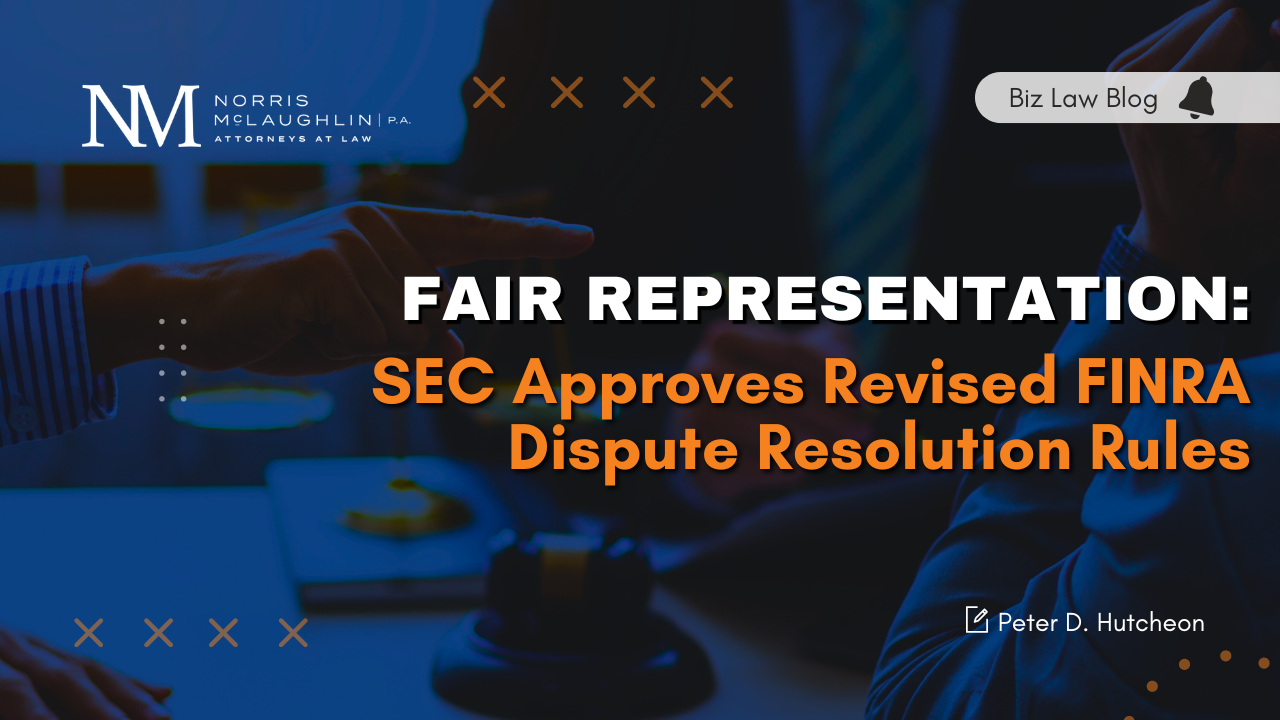“Promise Them Anything, But Give Them” – NOTHING, SEC Sanctions Adviser to Private Funds

On Thursday, June 30, 2022, the U.S. Securities and Exchange Commission (“SEC”) issued an Order (the ”Order”) Instituting Administrative and Cease-and-Desist Proceeding against the following: i) a private investment adviser (“Corona”) to three privately-offered funds (the “Corona Funds”) (Corona is organized as a limited liability company); and ii) the father and son cofounders and managing members of Corona (“Managers”), for violations of the Investment Advisers Act of 1940, as amended, and an SEC rule thereunder. Specifically, Corona and the Managers were found to have made “untrue statement[s] of a material fact” or to have omitted “to state a material fact necessary to make the statements made, in light of the circumstances under which they were made, not misleading to any investor or prospective investor in” the Corona Funds. The Order expressly notes that the Commission does not have to prove scienter to establish that the acts and omissions with which the respondents are charged are these violations.
Corona, founded in 2012, has never registered with the Commission as an investment adviser. But pursuant to California law, Corona had to file a Form ADV (the form that SEC-registered investment advisers must file with the Commission), which made Corona and its Managers subject to the Commission’s regulatory jurisdiction. The Corona Funds consist of two feeder funds and one master fund. One of the feeder funds is a California limited partnership whose shares are offered to U.S. investors; the other is a British Virgin Islands limited company whose shares are offered to tax-exempt U.S. and foreign investors. The master fund is a British Virgin Islands limited partnership. The Order notes that at its peak in 2016, Corona had over $8 million in assets under management on behalf of approximately 25 (per the Order) “high-net-worth retail investors” who had purchased shares in one or both feeder funds.
Beginning in 2013, the Managers provided investors with private placement memoranda (“PPM”). The PPMs used from 2013 to 2017 stated that the Corona Funds would provide investors annually with “audited financial statements” audited by “Auditor A” (the name used in the Order). One of the Managers, the son, did approach Auditor A about performing annual audits for the Corona Funds, but Auditor A was never engaged and did not perform any audits. From 2013 to 2017, the Corona Funds did produce annual financial statements; they were just unaudited and were not provided to the investors. In 2014, Auditor A was acquired by Auditor B (the name used in the Order). In October 2017, Corona’s legal counsel, who the Order states was “unaware Auditor B had never been engaged” by Corona or the Corona Funds, “on his own updated the PPMs…to reflect the acquisition” of Auditor A by Auditor B. NO auditor was ever engaged and NO annual financial statements, audited or unaudited, were given to the Corona Funds investors. Corona continued to use the faulty PPMs until “the present” to solicit new investors or to retain existing ones. Investors did “receive monthly and yearly statements showing their individual gains and losses on their investments in the Funds through 2020.”
The respondents, with one exception, agreed to accept the penalties and undertakings required by the Order. Those undertakings are as follows: within 30 days, engage an independent compliance consultant to review all the disclosures made to “actual and potential investors,” and correct them as necessary; within 30 days, provide a copy of the Order to all current and former investors with a cover letter approved by the Commission; certify in detail compliance with these undertakings. The respondents are censured; ordered to cease-and-desist from future violations; and ordered to pay civil penalties comprising $50,000 by Corona; $10,000 by one Manager, the father; and $20,000 by the other Manager, the son. The Order provides, as is usual for such orders, that the civil penalties are not dischargeable in a bankruptcy proceeding, but also reports that the Managers do not agree to the nondischargeability provision of the Order.
This matter presents numerous curious anomalies. First, the Manager who is the son had held a Series 7 License and had been (per the Order) “associated with several financial services industry firms.” How, then, had he failed to engage Auditor A, take immediate action to revise/correct the faulty PPMs, and/or provide the Corona Funds investors with annual financial statements (even if unaudited)? The high-net-worth Corona Funds investors had average holdings of $320,000 ($8 million divided by 25 investors). How had these individuals, who were able to amass the level of wealth that enabled them to invest in the Corona Funds, failed to raise questions about the failure to provide annual audited financial statements? Even if those investors did not “recall” reading in the PPM that they were going to receive annual audited financial statements, how had they not noticed that they received NO annual financial statements? Why should an “exempt adviser” under California law must file a Form ADV with the SEC and become subject to the Commission’s jurisdiction? Why was Corona’s legal counsel “unaware” that an auditing firm had not been engaged (counsel are almost always asked annually to respond to an outside auditor whether there are outstanding or threatened claims against the company whose finances are being audited)?
It is not possible to answer these questions with any certainty. Clearly the Managers and the investors were not alert, and legal counsel was not focused. Nonetheless, the magnitude of the civil penalties suggests that Corona and its Funds were not involved in active financial fraud that victimized the Funds’ investors. The author, with apologies to the famed perfumery Lanvin and one of its scents, Arpege (see the old advertisements: “Promise her anything, but give her Arpege”), does not intend the title of this Blog to suggest there was anything odiferous in the Corona operations.
If you have any questions concerning this post or any related matter, please feel free to contact me at pdhutcheon@norris-law.com.




